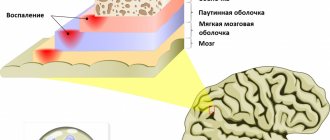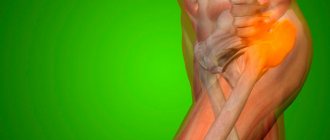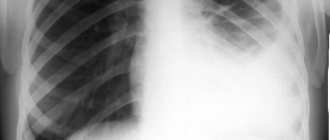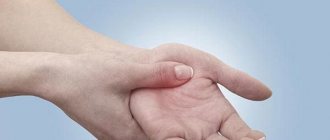- Physiological reasons
- Dental reasons
- Paresthesia of the lips due to damage or inflammation of the trigeminal nerve
- Numbness due to migraine with aura
- Numb lips due to stroke
- Numb lips due to diabetes
- Numb lips due to allergies
- Shingles
- Neuroses and multiple sclerosis
- Anemia
- Diagnosis and treatment
Lip paresthesia (numbness) is a condition in which tissue sensitivity decreases or disappears.
This process may be accompanied by tingling or other sensations. Numbness of the lips occurs for physiological reasons and is one of the symptoms of a certain pathology. First of all, it is necessary to pay attention to the frequency of occurrence and duration of this condition, its spread to other parts of the face and body. Lips may go numb in people who suffer from neurological and dental diseases, diabetes, anemia, allergies and a number of other diseases. If the symptom occurs frequently, an examination by a dentist and neurologist is recommended to determine the exact cause of the numbness.
Physiological reasons
Tissue sensitivity may decrease upon contact with very hot or cold food or drinks. This happens when a person eats ice cream, drinks tea or coffee that is too hot, or eats too spicy food. A similar phenomenon is observed outside in cold weather. The skin of the lips becomes chapped, cracks appear, and sensitivity decreases. Physiological numbness in most cases does not cause harm to health. As soon as contact with the irritant ceases, tissue sensitivity is restored.
To avoid the negative consequences of low-temperature exposure, you should use lipsticks and balms that will protect the skin from chapping and painful cracks.
Another possible cause of tissue numbness is cosmetic and cosmetic procedures. For example, lip products with red pepper extract may cause a slight burning sensation or numbness of the tissues. Some women experience a decrease in lip sensitivity after tattooing if the procedure was performed incorrectly or the wrong lip care was chosen after it.
Treatment of headaches and hand numbness
Treatment is individualized and depends on the final diagnosis. Its goal is not only to eliminate unpleasant symptoms and pain, but also to get rid of their underlying cause. So, the doctor may prescribe:
- for stroke - a comprehensive rehabilitation program aimed at restoring nerve conduction in the affected areas, therapeutic exercises, exercises to improve memory and speech;
- for neck diseases - a set of exercises to perform at home, muscle relaxants, wearing a hard collar if necessary;
- for vascular diseases - a gentle diet, moderate physical activity, drugs to improve blood circulation in the brain;
- surgery - may be required to remove hernias and aneurysms; in some patients it is indicated for injuries.
At the Clinical Brain Institute, it is possible to receive treatment both on an outpatient basis and in an inpatient setting. Also in our center you can select an individual rehabilitation program after a stroke and undergo it under the supervision of doctors. It is important to understand that the effectiveness of treatment will depend not only on the correct prescriptions, but also on their implementation at home.
Dental reasons
When treating teeth and performing some types of cosmetic procedures, local anesthesia is used, which reduces the sensitivity of tissues. During the period of action of the drug, lips, cheeks, and other areas of the face become numb. After completion of the therapeutic manipulations, sensitivity is restored on its own.
Numbness of the lips and tongue is accompanied by inflammatory processes in the oral cavity. This happens with gingivitis, periodontal disease, and purulent lesions. Soft tissues are involved in the pathological process, which causes swelling and impaired receptor sensitivity.
Numbness of the face
Stroke
Diabetes
32238 March 16
IMPORTANT!
The information in this section cannot be used for self-diagnosis and self-treatment.
In case of pain or other exacerbation of the disease, diagnostic tests should be prescribed only by the attending physician. To make a diagnosis and properly prescribe treatment, you should contact your doctor. Numbness of the face: causes of occurrence, what diseases it occurs with, diagnosis and treatment methods.
Definition
Numbness of the face occurs when the sensitivity of skin and muscle receptors to various impulses is impaired. This symptom may develop gradually or appear suddenly. Loss of facial sensitivity is described as burning, tingling, sometimes pain, and in some cases as a complete absence of sensation. When the face is numb, the color of the skin over the affected area may change in the form of pallor or redness.
In severe cases, sensory impairment is accompanied by a decrease in the motor function of the facial muscles.
Types of facial numbness
Any external influence, be it heat or cold, light touch or strong pressure, leads to activation of skin receptors and muscle structures. Each receptor is associated with a specific type of nerve fiber that transmits a specific type of sensitivity (sensation of pressure on the skin, vibration, stretching of the skin, and temperature sensitivity). An impulse is generated in the receptor, which is sent through nerve fibers at high speed to the nerve ganglia, which are a collection of sensory neurons. This is where primary information processing occurs to activate vital reflexes. Subsequently, the impulse goes to the brain, where it is processed in special nerve centers, and the person feels pain, pressure, vibration, etc. Thus, we can talk about the following types of sensitivity disorders:
- Violation of surface sensitivity
occurs when receptors (temperature, tactile, pain, etc.) and nerve fibers of the facial skin are damaged. - Violation of deep sensitivity
occurs when the receptors and nerve fibers of the facial muscles are damaged. - Violation of complex types of sensitivity
. A similar type of disorder occurs when the cerebral cortex is damaged. There is no recognition of two different stimuli that simultaneously affect the skin, or the person cannot determine the location of the touch.
Possible causes of facial numbness
In many cases, numbness in different parts of the face is short-term, passing within a few minutes.
Such episodes can occur when the head is positioned in an awkward position, for example during sleep.
This occurs due to compression of the nerve fibers and a temporary disruption of impulse conduction. There is a burning and tingling sensation in the affected area. Partial loss of sensitivity is observed with prolonged exposure to the cold due to vasospasm. After gradual warming of the skin, sensitivity is restored.
However, facial numbness can be a symptom of a serious medical condition.
Acute cerebrovascular accident, or stroke
– a common cause of sudden numbness of the face in combination with a violation of facial activity. Hemorrhage or blockage of brain vessels by a thrombus (blood clot) occurs, acute oxygen deficiency and damage to neurons with disruption of their functions develops. Symptoms develop unexpectedly, sometimes accompanied by headache.
The main signs of a stroke are: numbness of the face and limbs on one or both sides, sudden weakness, speech impairment (inability to clearly pronounce words), drooping of the corner / corners of the mouth, uncoordination of movements.
If these symptoms appear, you should immediately seek medical help. A cerebral aneurysm
can cause numbness in the face due to compression of nerve fibers and sensitive centers of the brain. It usually develops gradually; at the onset of the disease, symptoms may be completely absent. Numbness first affects one area of the face (for example, perioral), and with further growth of the aneurysm, the affected area gradually expands. Sensations may also change: from tingling, burning at first - to a complete absence of sensations later.
There is a danger of rupture of a cerebral aneurysm; in this case, the symptoms are similar to those of a stroke and appear quickly.
Trigeminal neuritis
often accompanies inflammatory diseases of the oral cavity (caries, periodontitis), ear (otitis), paranasal sinuses (sinusitis, frontal sinusitis, ethmoiditis), parotid glands (mumps). The branches of the trigeminal nerve are irritated, which can lead to numbness in the corresponding areas of the face.
Impaired sensitivity with increased tone of the masticatory muscles
occurs due to compression of the branches of the trigeminal nerve by muscle fibers. Hypertonicity of the masticatory muscles is characteristic of damage to the temporomandibular joint due to arthritis and arthrosis, incorrectly selected braces, and certain diseases of the pharynx, for example, peritonsillar abscess.
Diabetes
– with this disease, the process of utilization of glucose from the blood is disrupted, which leads to damage to the vascular wall and disruption of the nutrition of nerve bundles. In the absence of maintenance therapy, tingling and partial loss of sensitivity in areas where the blood supply is impaired may occur.
Numbness of the face in multiple sclerosis
occurs due to demyelination (disappearance of the outer sheath) of the nerve fibers of the trigeminal nerve. Numbness is often preceded by severe pain not only in the face, but also in the limbs.
Tumors of the brain and its membranes
lead to impaired sensitivity in the facial area due to compression of the neurovascular bundles or tumor growth in them.
Which doctors should I contact if I have facial numbness?
If your face becomes numb, you should consult a neurologist or therapist. In some cases, consultation with an otolaryngologist, endocrinologist, or dentist may be required.
Diagnosis and examinations for facial numbness
Depending on the suspected cause of facial numbness, the following laboratory and instrumental studies may be required:
- clinical blood test;
Numbness due to migraine with aura
Migraines with aura are attacks of severe headaches, which are preceded by impaired tissue sensitivity, visual disturbances (spots and “floaters” before the eyes), and speech impairment.
Patients with the neurological disease experience temporary numbness of the lips and sometimes half of the face. In some cases, the sensitivity of the upper limb may decrease. In addition to these symptoms, migraine with aura is accompanied by severe headache, which is pressing or throbbing in nature, dizziness and nausea.
Causes of temporary numbness
A person’s lower lip goes numb (a therapist or neurologist will tell you what to do about it) not always due to serious illnesses. Sometimes a provoking factor causes temporary disturbances that disappear on their own after the negative source of influence is eliminated.
| Name | Description |
| Exposure to extreme cold temperatures | In the cold, not only a person’s lips become numb, but also their cheeks and nose. The feeling of discomfort disappears on its own as soon as the ambient temperature rises. |
| Allergy | Exposure sources include certain medications, foods, or cosmetics. In this case, the person also develops accompanying symptoms:
The source of an allergic reaction is also pollen or pet dander. |
| Medicines | Some medications cause numbness in the lips. This is due to the side effects of the medications taken. These medications include antihistamines, antidepressants, or medications used during chemotherapy. |
| Anesthesia | The lower lip becomes numb during dental treatment or implant placement. To prevent a person from feeling severe pain, he is given anesthesia. The lower lip becomes numb for a while. If the symptom persists for longer than 24 hours, then you should contact the clinic. |
| Alcohol | Temporary numbness of the lower lip is provoked by chronic alcoholism or severe intoxication of the body. |
A neurologist will help determine the influencing source and provoking factor. Early diagnosis is necessary to eliminate pathological processes and prevent complications.
Numb lips due to diabetes
For patients with diabetes, it is important to control blood glucose levels and avoid sudden increases or decreases in sugar. Lips may become numb due to hypoglycemia - a decrease in glucose levels below 2.8 mmol/l. This happens when you take too high a dose of insulin or violate your diet or skip meals.
In addition to numbness of the lips, the patient experiences severe weakness, tremors in the limbs, rapid heartbeat, and excessive sweating. In severe cases, hypoglycemia leads to loss of consciousness and coma. To eliminate this dangerous condition, you need to eat something sweet with quickly doubling carbohydrates. If the patient is unconscious, intravenous glucose and glucagon injection are required.
Diagnosis and treatment
Numbness of the lips itself occurs only for physiological reasons and does not require treatment. In other cases, patients note other signs of pathology: pain, weakness, dizziness, etc. Based on these, the cause of the sensitivity disorder can be determined and a treatment regimen can be selected. To make an accurate diagnosis, you need to consult a therapist, dentist or neurologist.
If inflammatory processes or tumors in the oral cavity are suspected, an x-ray is prescribed.
For neurological pathologies, CT and MRI are used to make a diagnosis. Laboratory tests help confirm or exclude the presence of diabetes and anemia. To get rid of numb lips, you need to eliminate the underlying cause. To do this, patients are prescribed drug therapy that effectively combats the symptoms of the disease. For tumors, fractures or injuries of the jaw, pulpitis, abscesses, and strokes, surgical treatment is required.
Treatment
Pre-hospital assistance
Numbness due to the use of seasonings, hot and cold foods does not require treatment and goes away on its own. If the sensitivity of the upper lip has decreased due to the use of incorrectly selected cosmetics, you should give the skin a rest and then apply another product. For chapped lips, it is recommended to use hygienic lipstick and rich nourishing creams.
For mild allergy symptoms, it is permissible to take an antiallergic drug on your own; for toothache, use an analgesic. To determine the cause of numbness, you should consult a doctor. Progressive deterioration of the condition, severe headache, increased swelling and other alarming symptoms are an indication for urgent consultation with a specialist.
Conservative therapy
The list of treatment measures depends on the cause of the symptom. Taking into account the nature of the pathology, the following therapeutic methods are recommended for patients with numbness of the upper lip:
- Dental diseases
. Removal of dental plaque, professional teeth cleaning, and sometimes selective tooth grinding are required. Applications of anesthetics and medications with antimicrobial action, rinses, and oral baths are effective. - Migraine
. To eliminate cephalalgia, painkillers and NSAIDs are used; for persistent headaches, triptans are used. Prevention of attacks is carried out by prescribing anticonvulsants and antidepressants in long courses. - Herpes zoster
. The basis of treatment is acyclovir in tablets or solution for intravenous drip. The regimen is supplemented with dipyridamole to inhibit platelet aggregation, furosemide for dehydration, and homologous immunoglobulin to activate immunogenesis. - Pernicious anemia
. Lifelong therapy with vitamin B12 and treatment of the underlying disease that provoked hypovitaminosis (enzyme intake, deworming) are necessary. - Angioedema
. It is possible to administer glucocorticoids, antihistamines, antifibrinolytics, fresh frozen native plasma, androgens, and loop diuretics. - Hypoglycemia
. Therapy includes eating sweet foods, intravenous administration of glucose solution, adrenaline, glucagon or glucocorticoids, drugs to support vascular tone and cardiac activity. - Neurotic disorders
. Psychotherapy is indicated, sometimes in combination with the prescription of psychotropic drugs: antidepressants, anti-anxiety and sedatives.
Surgery
If the trigeminal nerve is damaged or compressed, a nerve suture, neurolysis, and tumor removal are required. In patients with injuries, osteosynthesis of the upper jaw or zygomatic bone may be indicated. Patients suffering from dental diseases undergo tooth extraction, treatment of pulpitis and periodontitis. Gingivoplasty, gingivectomy, flap surgery, and opening of an oral abscess are performed. In case of strokes, the creation of anastomoses, reconstruction of arteries, thrombolysis, and occlusion of aneurysms are possible.











